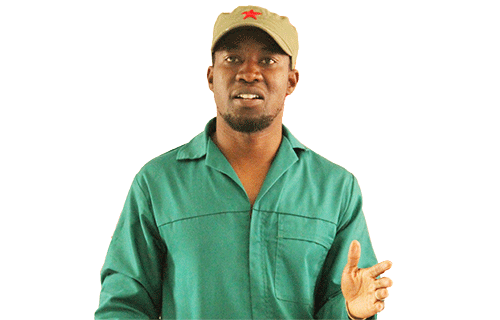High Court Judge Shafimana Ueitele yesterday ruled in favour of politician Job Amupanda that there will be no costs order in the main trial over the removal of the Veterinary Cordon Fence.
Amupanda lodged a court application to remove the 1896 fence, describing it as a stark reminder of Apartheid and a blemish on Namibia’s democracy.
He then lodged an application in terms of Rule 20 of the High Court Rules for a protective costs order, as he said he will not be able to proceed with the matter as the costs will be “astronomical and beyond his pockets”.
He said he will be financially ruined should the outcome be against him, and he be ordered to pay the costs of the suit.
Minister of Agriculture, Water and Land Reform Calle Schlettwein, the government, the Attorney General and Hango Naminga opposed the application for a protective costs order.
In addition, the Meat Board of Namibia, farmers Diethelm Metzger and Andre Compion as well as the Namibian Agricultural Union are opposing the removal of the fence, which is known as the red line.
Judge Ueitele noted that the case raises issues of general importance that must, in the public interest, be resolved by the courts.
He said coupled with Amupanda’s meagre resources and the financial resources of the defendants, plus the amount of costs likely to be involved in the matter, it is fair and just to make a protective costs order.
He added that Amupanda’s application is neither frivolous nor vexatious in nature, and involves public interest.
This allows him to use his inherent discretionary powers as a judge to decide on the matter at hand.
“In the present case, I am satisfied that although Mr Amupanda is not impecunious (poor), he is also not a man of unlimited financial resources. He is a salaried person,” the judge remarked.
“On the other hand, the principled defendants (the first to fourth defendants) are the State, and that the State is better-resourced than Mr Amupanda is axiomatic, so is the Meat Board and the other respondents”, he added.
The judge further contended that the fact that some, if not all, of the defendants will utilise senior counsel will render the costs substantial, and an adverse costs order would be ruinous to any normal salaried person.
Amupanda suffered a setback early in his application when the judge refused to grant a protective costs order, but allowed him to supplement his papers.
The judge found that he did not fully disclose his financial position then.
Schlettwein, however, appealed this to the Supreme Court, where that decision was set aside.
But Amupanda was given an opportunity to lodge his application afresh.
In addition, the judge said a matter of finances should not prohibit any person from pursuing a worthwhile issue in the courts.
He ordered that there will be no costs order in the substantive proceedings, the trial proper, excluding interlocutory applications in this matter, whatever the outcome of the case.
He further ordered that Amupanda pays the costs of the parties which opposed the application, inclusive of the costs of one instructing and two instructing counsels.
The judge set down the date for the hearing of the matter as 20 to 31 January 2025.
He postponed the matter to 19 November for a status hearing.
After the verdict, Amupanda posted on his socials that they had scored a strategic victory against the corrupt regime, and that freedom is coming for people north of the 1896 red line.
“We have won and scored a strategic victory in the 1896 red line case. We launched a protective costs order so that there will be no costs order against us, as this is a public interest case,” he stated.
He was represented by advocates Mbushandje Ntinda and Tinashe Chibwana, instructed by lawyer Kadhila Amoomo. The respondents were represented by Advocate Herman Steyn, assisted by Marius Boonzaier, and instructed by the Government Attorney.
The Meat Board was represented by Advocate Raymond Heathcote SC, assisted by Advocate Andries van Vuuren, instructed by Theunissen Louw and Partners.
-rrouth@nepc.com.na



